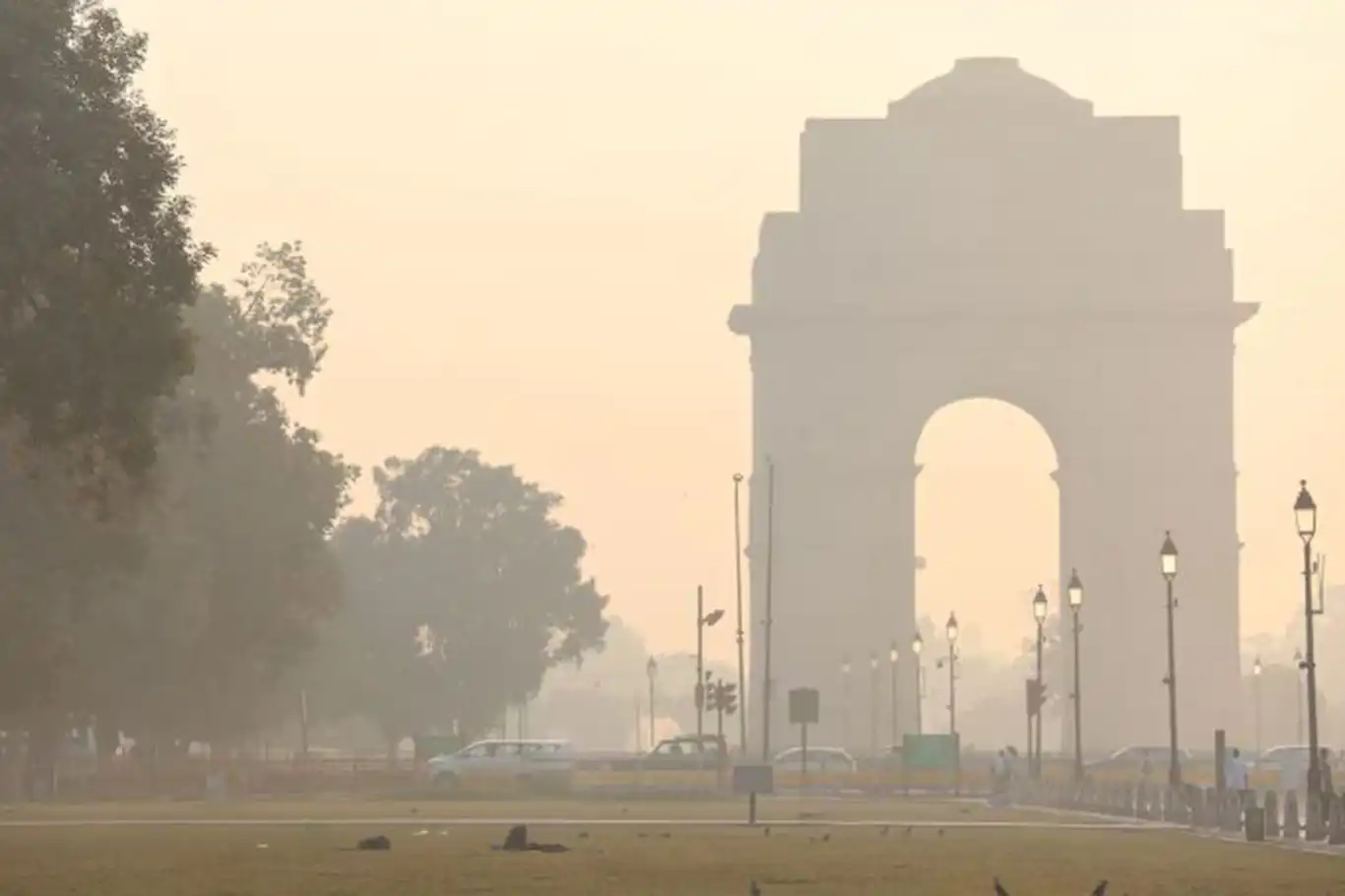India: Doctors warn of health crisis as Delhi’s toxic air reaches dangerous levels


Authorities in India’s capital have introduced emergency anti-pollution measures, including hybrid learning for primary school students and a ban on non-essential construction, as Delhi’s air quality plunged to hazardous levels this week.
According to the Central Pollution Control Board (CPCB), the city’s PM2.5 concentration reached 438 on Wednesday — nearly 30 times higher than the World Health Organisation’s (WHO) safe limit of 15 and eight times India’s national average. These microscopic particles are small enough to penetrate deep into the lungs and bloodstream, posing severe health risks.
The worsening pollution prompted officials to enforce stage three of the Graded Response Action Plan (GRAP) on Tuesday, which includes prohibitions on mining, stone crushing, and the movement of dust-generating vehicles and goods carriers across Delhi and its adjoining regions.
“Our government is working with full seriousness and promptness towards pollution control,” Delhi Chief Minister Rekha Gupta said in a statement on Tuesday, as her administration faced mounting pressure over deteriorating air conditions.
The Delhi Education Department directed schools to conduct hybrid or online classes for primary students to limit outdoor exposure. Doctors have urged residents, particularly children, the elderly, and those with respiratory issues, to avoid outdoor activities and wear protective masks when venturing outside.
Hospitals across the capital have reported a surge in respiratory distress cases, especially among children and the elderly. “We’re seeing a noticeable rise in patients complaining of shortness of breath, coughing, and eye irritation,” said Dr. Nisha Arora, a pulmonologist at Delhi’s Safdarjung Hospital.
Toxic smog has become an annual winter emergency in Delhi and northern India, caused by a mix of factors including vehicle emissions, industrial output, low wind speeds, and the seasonal burning of crop stubble in neighboring Punjab and Haryana.
Experts say stagnant air during colder months traps pollutants near the ground, exacerbating the smog layer that blankets the capital. Despite recurring measures, Delhi continues to rank among the world’s most polluted cities every winter.
The pollution crisis has also ignited a political row. Opposition leader Saurabh Bhardwaj of the Aam Aadmi Party (AAP) accused the BJP-led Delhi government of “manipulating” air quality readings and “failing to protect public health.”
“The air quality remains alarming despite the alleged manipulation of numbers,” Bhardwaj said, calling for the government to declare a public health emergency.
Environment Minister Manjinder Singh Sirsa, however, rejected the claims, stating that air quality data remains transparent and publicly accessible. He explained that water was sprinkled near monitoring stations to control dust, not to alter readings.
Last weekend, hundreds of Delhi residents staged a protest demanding stronger anti-pollution policies and stricter enforcement of existing regulations. Environmental groups criticized the authorities for recurring inaction and short-term responses to what they describe as a “man-made, predictable disaster.”
As the capital continues to choke under toxic air, health experts warn that long-term solutions — including cleaner energy, stricter vehicle emissions standards, and regional cooperation on crop burning — are essential to prevent Delhi’s recurring air pollution crisis from worsening year after year. (ILKHA)
LEGAL WARNING: All rights of the published news, photos and videos are reserved by İlke Haber Ajansı Basın Yayın San. Trade A.Ş. Under no circumstances can all or part of the news, photos and videos be used without a written contract or subscription.
Spanish government has imposed an immediate nationwide lockdown, requiring all poultry to be kept indoors.
The United Nations Relief and Works Agency for Palestine Refugees in the Near East (UNRWA) has warned that the scale of destruction in Gaza has left hundreds of thousands of people without shelter, as winter approaches and humanitarian conditions continue to deteriorate.
Kazakhstan and Russia have signed a landmark declaration elevating their bilateral relations to the level of a comprehensive strategic partnership and alliance, marking a historic milestone in the two countries’ long-standing cooperation.